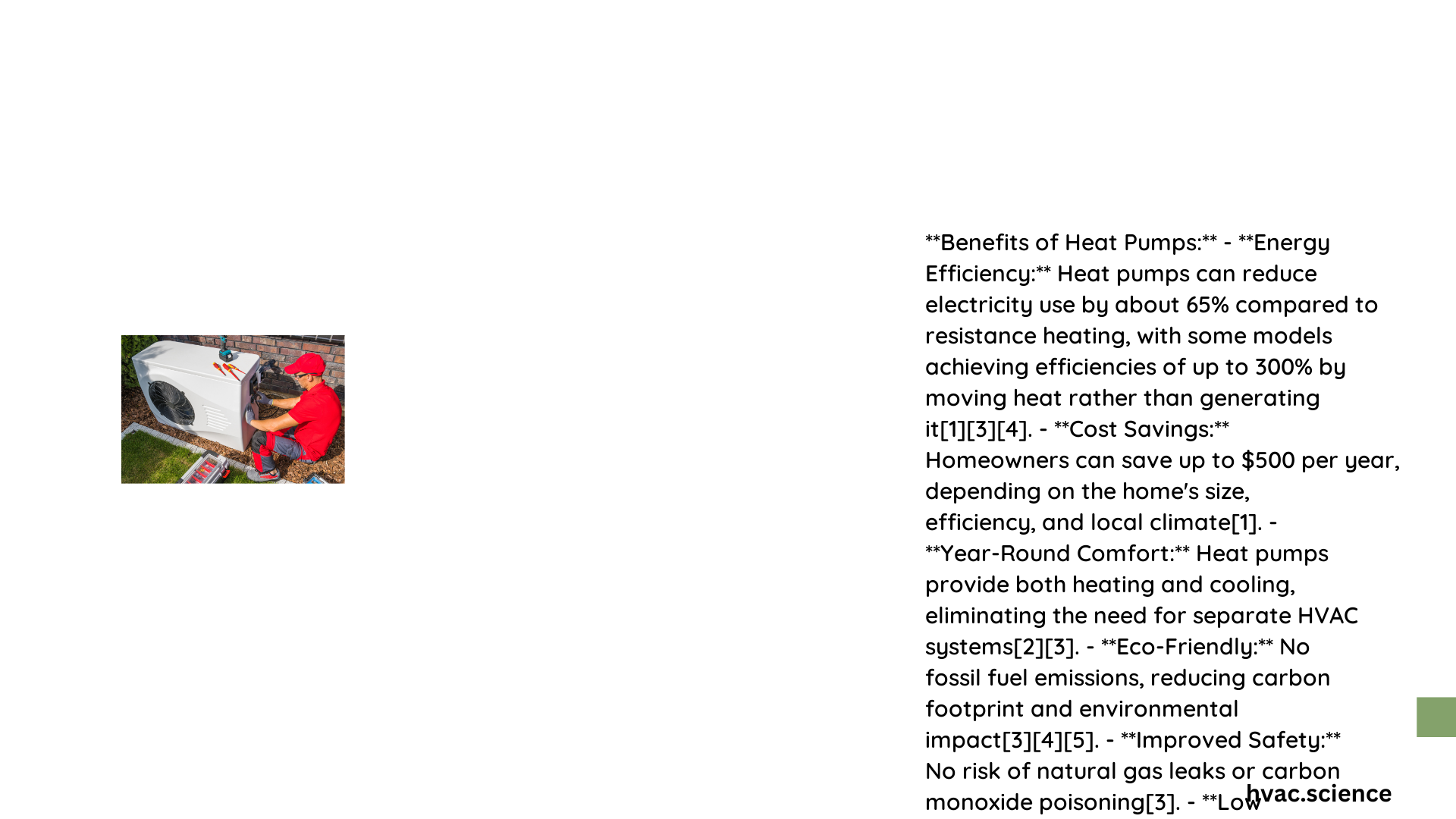Heat pumps represent a revolutionary approach to home heating and cooling, offering remarkable energy efficiency and environmental benefits. These advanced systems transfer heat instead of generating it, providing homeowners with a versatile solution that can dramatically reduce energy consumption. While heat pumps present significant advantages like lower operating costs and reduced carbon emissions, they also come with challenges such as higher upfront installation expenses and performance limitations in extreme temperatures.
What Makes Heat Pumps Unique?
Heat pumps are sophisticated thermal transfer systems that move heat between indoor and outdoor environments, functioning efficiently in both heating and cooling modes. Unlike traditional heating systems that generate heat, these innovative devices extract and redistribute thermal energy, making them inherently more energy-efficient.
How Do Heat Pump Benefits Compare to Traditional Systems?

Efficiency Advantages
| Metric | Heat Pump | Traditional Heating |
|---|---|---|
| Energy Efficiency | 300-500% | 80-90% |
| Annual Operating Cost | Lower | Higher |
| Carbon Emissions | Significantly Reduced | Higher |
Key Performance Benefits
- Energy Efficiency
- Coefficient of Performance (COP) ranges between 3.0-5.0
- Produces 3-5 units of heat per unit of electrical energy consumed
-
Dramatically lower energy consumption compared to traditional systems
-
Cost Savings
- Potential annual energy savings of $500-$1,500
- Reduced long-term operational expenses
- Lower maintenance requirements
What Environmental Impacts Do Heat Pumps Offer?
Heat pumps contribute significantly to environmental sustainability by:
– Reducing greenhouse gas emissions
– Minimizing reliance on fossil fuel-based heating
– Supporting renewable energy integration
– Providing a scalable solution for carbon-neutral heating
What Challenges Do Heat Pumps Present?
Installation Considerations
- Initial Investment
- Higher upfront costs ($3,000-$10,000)
- Requires professional installation
-
Potential home infrastructure modifications
-
Performance Limitations
- Reduced efficiency in extreme cold temperatures
- Dependent on local climate conditions
- Requires supplemental heating in some regions
How Can Homeowners Maximize Heat Pump Benefits?
- Conduct thorough home energy assessment
- Choose appropriate heat pump type for local climate
- Ensure proper professional installation
- Implement regular maintenance
- Consider supplemental heating options
Technical Specifications to Consider
- Seasonal Performance Factor (SPF): 3.5-4.5
- Temperature Range: -15°C to 35°C
- Typical Lifespan: 15-20 years
- Installation Time: 2-5 days
Cost-Benefit Analysis
| Factor | Benefit | Drawback |
|---|---|---|
| Initial Cost | Higher investment | Long-term savings |
| Energy Efficiency | Extremely high | Performance varies |
| Environmental Impact | Minimal carbon footprint | Electricity source dependent |
Conclusion
Heat pumps offer a compelling alternative to traditional heating systems, balancing technological innovation with environmental responsibility. While challenges exist, their potential for energy savings and reduced carbon emissions makes them an increasingly attractive option for modern homeowners.
